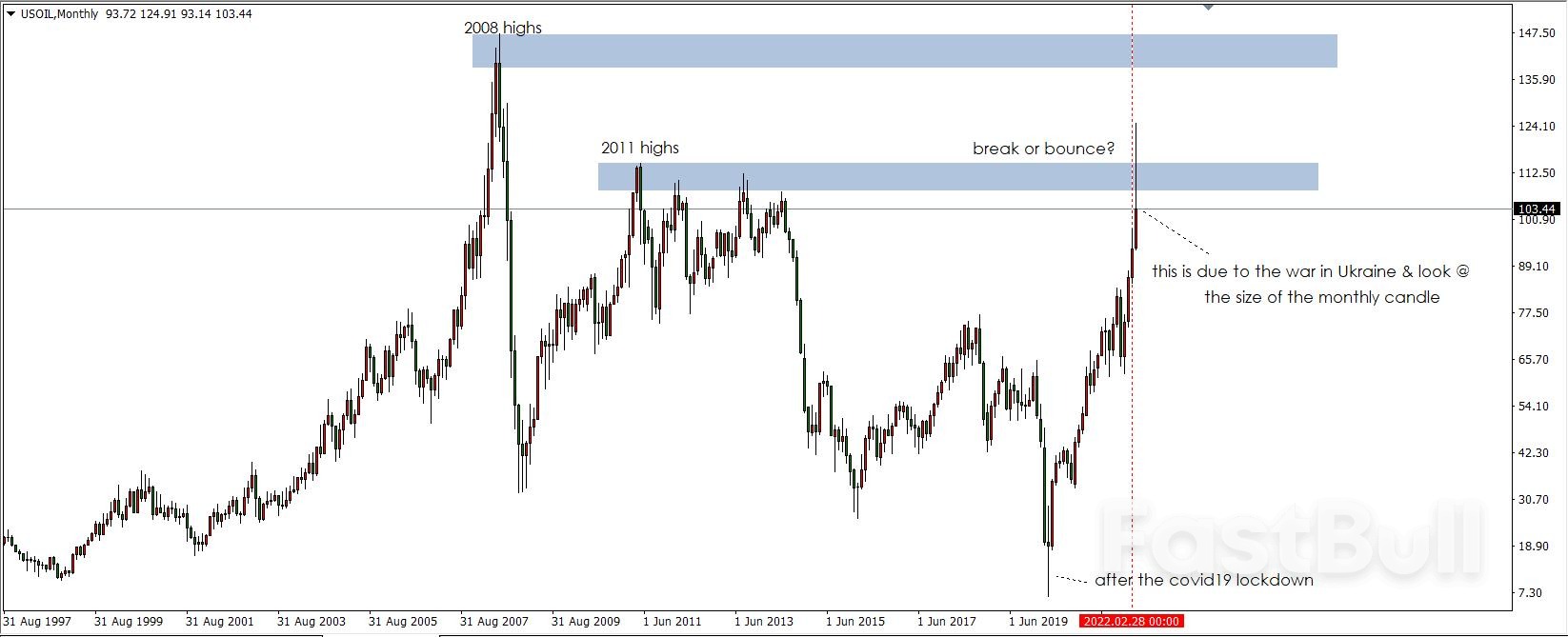Markets
News
Analysis
User
24/7
Economic Calendar
Education
Data
- Names
- Latest
- Prev


 U.K. Retail Sales YoY (SA) (Jan)
U.K. Retail Sales YoY (SA) (Jan)A:--
F: --
 France Manufacturing PMI Prelim (Feb)
France Manufacturing PMI Prelim (Feb)A:--
F: --
P: --
 France Services PMI Prelim (Feb)
France Services PMI Prelim (Feb)A:--
F: --
P: --
 France Composite PMI Prelim (SA) (Feb)
France Composite PMI Prelim (SA) (Feb)A:--
F: --
P: --
 Germany Composite PMI Prelim (SA) (Feb)
Germany Composite PMI Prelim (SA) (Feb)A:--
F: --
P: --
 Germany Manufacturing PMI Prelim (SA) (Feb)
Germany Manufacturing PMI Prelim (SA) (Feb)A:--
F: --
P: --
 Germany Services PMI Prelim (SA) (Feb)
Germany Services PMI Prelim (SA) (Feb)A:--
F: --
P: --
 Euro Zone Composite PMI Prelim (SA) (Feb)
Euro Zone Composite PMI Prelim (SA) (Feb)A:--
F: --
P: --
 Euro Zone Manufacturing PMI Prelim (SA) (Feb)
Euro Zone Manufacturing PMI Prelim (SA) (Feb)A:--
F: --
P: --
 Euro Zone Services PMI Prelim (SA) (Feb)
Euro Zone Services PMI Prelim (SA) (Feb)A:--
F: --
P: --
 U.K. Manufacturing PMI Prelim (Feb)
U.K. Manufacturing PMI Prelim (Feb)A:--
F: --
P: --
 U.K. Services PMI Prelim (Feb)
U.K. Services PMI Prelim (Feb)A:--
F: --
P: --
 U.K. Composite PMI Prelim (Feb)
U.K. Composite PMI Prelim (Feb)A:--
F: --
P: --
 India Deposit Gowth YoY
India Deposit Gowth YoYA:--
F: --
P: --
 Mexico Economic Activity Index YoY (Dec)
Mexico Economic Activity Index YoY (Dec)A:--
F: --
P: --
 Canada Retail Sales MoM (SA) (Dec)
Canada Retail Sales MoM (SA) (Dec)A:--
F: --
 Canada Core Retail Sales MoM (SA) (Dec)
Canada Core Retail Sales MoM (SA) (Dec)A:--
F: --
P: --
 ECB Chief Economist Lane Speaks
ECB Chief Economist Lane Speaks U.S. IHS Markit Services PMI Prelim (SA) (Feb)
U.S. IHS Markit Services PMI Prelim (SA) (Feb)A:--
F: --
P: --
 U.S. IHS Markit Manufacturing PMI Prelim (SA) (Feb)
U.S. IHS Markit Manufacturing PMI Prelim (SA) (Feb)A:--
F: --
P: --
 U.S. IHS Markit Composite PMI Prelim (SA) (Feb)
U.S. IHS Markit Composite PMI Prelim (SA) (Feb)A:--
F: --
P: --
 U.S. UMich Consumer Sentiment Index Final (Feb)
U.S. UMich Consumer Sentiment Index Final (Feb)A:--
F: --
P: --
 U.S. Existing Home Sales Annualized Total (Jan)
U.S. Existing Home Sales Annualized Total (Jan)A:--
F: --
 U.S. UMich Consumer Expectations Index Final (Feb)
U.S. UMich Consumer Expectations Index Final (Feb)A:--
F: --
P: --
 U.S. UMich Current Economic Conditions Index Final (Feb)
U.S. UMich Current Economic Conditions Index Final (Feb)A:--
F: --
P: --
 U.S. Existing Home Sales Annualized MoM (Jan)
U.S. Existing Home Sales Annualized MoM (Jan)A:--
F: --
 U.S. UMich 1-Year-Ahead Inflation Expectations Final (Feb)
U.S. UMich 1-Year-Ahead Inflation Expectations Final (Feb)A:--
F: --
P: --
 BOC Gov Macklem Speaks
BOC Gov Macklem Speaks U.S. Weekly Total Oil Rig Count
U.S. Weekly Total Oil Rig CountA:--
F: --
P: --
 U.S. Weekly Total Rig Count
U.S. Weekly Total Rig CountA:--
F: --
P: --
 BOC Press Conference
BOC Press Conference Turkey Capacity Utilization (Feb)
Turkey Capacity Utilization (Feb)--
F: --
P: --
 Indonesia Loan Growth YoY (Jan)
Indonesia Loan Growth YoY (Jan)--
F: --
P: --
 Germany Ifo Business Expectations Index (SA) (Feb)
Germany Ifo Business Expectations Index (SA) (Feb)--
F: --
P: --
 Germany Ifo Current Business Situation Index (SA) (Feb)
Germany Ifo Current Business Situation Index (SA) (Feb)--
F: --
P: --
 Germany IFO Business Climate Index (SA) (Feb)
Germany IFO Business Climate Index (SA) (Feb)--
F: --
P: --
 Euro Zone Core CPI Final MoM (Jan)
Euro Zone Core CPI Final MoM (Jan)--
F: --
P: --
 Euro Zone CPI YoY (Excl. Tobacco) (Jan)
Euro Zone CPI YoY (Excl. Tobacco) (Jan)--
F: --
P: --
 Euro Zone Core HICP Final YoY (Jan)
Euro Zone Core HICP Final YoY (Jan)--
F: --
P: --
 Euro Zone HICP MoM (Excl. Food & Energy) (Jan)
Euro Zone HICP MoM (Excl. Food & Energy) (Jan)--
F: --
P: --
 Euro Zone HICP Final YoY (Jan)
Euro Zone HICP Final YoY (Jan)--
F: --
P: --
 Euro Zone HICP Final MoM (Jan)
Euro Zone HICP Final MoM (Jan)--
F: --
P: --
 Euro Zone Core HICP Final MoM (Jan)
Euro Zone Core HICP Final MoM (Jan)--
F: --
P: --
 Euro Zone Core CPI Final YoY (Jan)
Euro Zone Core CPI Final YoY (Jan)--
F: --
P: --
 Canada National Economic Confidence Index
Canada National Economic Confidence Index--
F: --
P: --
 U.S. Chicago Fed National Activity Index (Jan)
U.S. Chicago Fed National Activity Index (Jan)--
F: --
P: --
 U.S. Dallas Fed New Orders Index (Feb)
U.S. Dallas Fed New Orders Index (Feb)--
F: --
P: --
 U.S. Dallas Fed General Business Activity Index (Feb)
U.S. Dallas Fed General Business Activity Index (Feb)--
F: --
P: --
 U.S. 2-Year Note Auction Avg. Yield
U.S. 2-Year Note Auction Avg. Yield--
F: --
P: --
 South Korea Benchmark Interest Rate
South Korea Benchmark Interest Rate--
F: --
P: --
 Germany GDP Revised YoY (Working-day Adjusted) (Q4)
Germany GDP Revised YoY (Working-day Adjusted) (Q4)--
F: --
P: --
 Germany GDP Final YoY (Not SA) (Q4)
Germany GDP Final YoY (Not SA) (Q4)--
F: --
P: --
 Germany GDP Final QoQ (SA) (Q4)
Germany GDP Final QoQ (SA) (Q4)--
F: --
P: --
 U.K. CBI Retail Sales Expectations Index (Feb)
U.K. CBI Retail Sales Expectations Index (Feb)--
F: --
P: --
 U.K. CBI Distributive Trades (Feb)
U.K. CBI Distributive Trades (Feb)--
F: --
P: --
 U.S. Weekly Redbook Index YoY
U.S. Weekly Redbook Index YoY--
F: --
P: --
 U.S. FHFA House Price Index (Dec)
U.S. FHFA House Price Index (Dec)--
F: --
P: --
 U.S. FHFA House Price Index YoY (Dec)
U.S. FHFA House Price Index YoY (Dec)--
F: --
P: --
 U.S. S&P/CS 20-City Home Price Index MoM (SA) (Dec)
U.S. S&P/CS 20-City Home Price Index MoM (SA) (Dec)--
F: --
P: --
 U.S. S&P/CS 20-City Home Price Index YoY (Not SA) (Dec)
U.S. S&P/CS 20-City Home Price Index YoY (Not SA) (Dec)--
F: --
P: --
 U.S. FHFA House Price Index MoM (Dec)
U.S. FHFA House Price Index MoM (Dec)--
F: --
P: --



No matching data
 US
US VN
VN TW
TW US
US VN
VN TW
TWLatest Views
Latest Views
Trending Topics

To quickly learn market dynamics and follow market focuses in 15 min.

In the world of mankind, there will not be a statement without any position, nor a remark without any purpose.

Inflation, exchange rates, and the economy shape the policy decisions of central banks; the attitudes and words of central bank officials also influence the actions of market traders.

Money makes the world go round and currency is a permanent commodity. The forex market is full of surprises and expectations.
Top Columnists

Enjoy exciting activities, right here at FastBull.

The latest breaking news and the global financial events.

I have 5 years of experience in financial analysis, especially in aspects of macro developments and medium and long-term trend judgment. My focus is maily on the developments of the Middle East, emerging markets, coal, wheat and other agricultural products.

BeingTrader chief Trading Coach & Speaker, 8+ years of experience in the forex market trading mainly XAUUSD, EUR/USD, GBP/USD, USD/JPY, and Crude Oil. A confident trader and analyst who aims to explore various opportunities and guide investors in the market. As an analyst I am looking to enhance the trader’s experience by supporting them with sufficient data and signals.
Latest Update

Risk Warning on Trading HK Stocks
Despite Hong Kong's robust legal and regulatory framework, its stock market still faces unique risks and challenges, such as currency fluctuations due to the Hong Kong dollar's peg to the US dollar and the impact of mainland China's policy changes and economic conditions on Hong Kong stocks.

HK Stock Trading Fees and Taxation
Trading costs in the Hong Kong stock market include transaction fees, stamp duty, settlement charges, and currency conversion fees for foreign investors. Additionally, taxes may apply based on local regulations.

HK Non-Essential Consumer Goods Industry
The Hong Kong stock market encompasses non-essential consumption sectors like automotive, education, tourism, catering, and apparel. Of the 643 listed companies, 35% are mainland Chinese, making up 65% of the total market capitalization. Thus, it's heavily influenced by the Chinese economy.

HK Real Estate Industry
In recent years, the real estate and construction sector's share in the Hong Kong stock index has notably decreased. Nevertheless, as of 2022, it retains around 10% market share, covering real estate development, construction engineering, investment, and property management.
Hongkong, China
Ho Chi Minh, Vietnam
Dubai, UAE
Lagos, Nigeria
Cairo, Egypt
White Label
Data API
Web Plug-ins
Affiliate Program
View All

No data
 English
English Español
Español العربية
العربية Bahasa Indonesia
Bahasa Indonesia Bahasa Melayu
Bahasa Melayu Tiếng Việt
Tiếng Việt ภาษาไทย
ภาษาไทย Français
Français Italiano
Italiano Türkçe
Türkçe Русский язык
Русский язык 简中
简中 繁中
繁中Not Logged In
Log in to access more features
FastBull Membership
Not yet
Purchase
Log In
Sign Up
Hongkong, China
Ho Chi Minh, Vietnam
Dubai, UAE
Lagos, Nigeria
Cairo, Egypt
White Label
Data API
Web Plug-ins
Affiliate Program
The current inflation in the US is very high. According to the latest data released by the US Department of Labor, the US CPI consumer price index in February was 7.9%, a new high since 1982. Against this backdrop, many are starting to predict whether the Fed will raise rates more aggressively than expected. At the same time, there are also concerns that the Fed's rate hike may cause the stock market to crash. The internal logic of the Fed raising interest rates is not so simple. The Fed raising interest rates will not definetely cause the stock market to crash.






White Label
Data API
Web Plug-ins
Poster Maker
Affiliate Program
The risk of loss in trading financial instruments such as stocks, FX, commodities, futures, bonds, ETFs and crypto can be substantial. You may sustain a total loss of the funds that you deposit with your broker. Therefore, you should carefully consider whether such trading is suitable for you in light of your circumstances and financial resources.
No decision to invest should be made without thoroughly conducting due diligence by yourself or consulting with your financial advisors. Our web content might not suit you since we don't know your financial conditions and investment needs. Our financial information might have latency or contain inaccuracy, so you should be fully responsible for any of your trading and investment decisions. The company will not be responsible for your capital loss.
Without getting permission from the website, you are not allowed to copy the website's graphics, texts, or trademarks. Intellectual property rights in the content or data incorporated into this website belong to its providers and exchange merchants.




